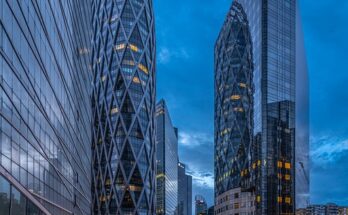Change and Forward Movement: The Future of Work and the Adaptation of the Workforce
The future of work is no longer an exploration but closer than daydreaming. Technological advances, changing demographics, and changing expectations from society are causing reshaping of the employment world as we know. There, it seeks deftness and a mechanism for fast learning in the environment of tomorrow on the part of not only the individuals but also the organizations.
Key Trends Informing the Future of Work:
- Automation and Artificial Intelligence (AI): Automation technologies and AI are transforming a wide swathe of industries by automating routine jobs and boosting human’s capabilities. While such developments will lead to displacements in some industries, others shall be born like data science, AI fostering, and automation management.
- Remote Work and the Gig Economy: The coming in of remote or home-working together with the gig economy will amalgamate the lines planted with traditional models of employment. Flexibility may mean controlled work-life balance but making themselves highly self-directed and flexible needs absolute demeanor while keeping oneself well-focused.
- The Gig Economy: The gig economy describes a rise in jobs that involve short-term contracts with freelancers. Though it offers flexibility, they can also bring with them difficulties such as lacking job security, benefits, and stable income.
- The Skills Gap: Through technology advancements, the skills requirements are in constant flux, which creates a skill gap whereby the existing labor force does not possess the skills that are required in the ever-changing labor market.
- Soft Skills Should Come to the Fore: Though technical skills have remained central, soft skills (the likes of communication, collaboration, critical thinking, and problem-solving) shall have a more pressing importance as far as the working condition is concerned.
Adapting to the Changing Landscape
Going forward, being able to meet the challenges of tomorrow’s work requires one to become well-prepared to adapt to the ever-changing landscape.
- Learning: A Continuous Process: Continuous education is not an option; it is a must. Individuals need to upgrade and acquire new knowledge and skills all their lives. They can do this through formal educational institutions, online courses, workshops, and on-the-job training.
- Building Future-proof Skills: Concentrating on the acquisition of the skills that are most sought-after, such as data analysis, digital marketing and artificial intelligence, will enhance one’s employability and career prospects.
- Technology Savvy: A thorough understanding of cutting-edge technologies such as AI, automation and cloud computing is a precondition in preparing oneself to enter into the world of work.
- Soft Skills: Communication skills, teamwork and adaptability are really prized by potential employers and offer candidates an edge in the labor market.
- Personal Branding: Building a strong personal brand is quintessential-you’ve got to do it in this digital age. Those individuals who finely live out any sort of personal brand and are nicely networked for an audience will showcase some skill and expertise of their own.
The Role of Organizations
Organizations also have a critical role to play in readying employees for the future:
- Investing into Employee Training: Providing opportunities for training-the organization can develop workshops; mentorship programs to support rising into new skills.
- Cultivating a Culture of Innovation: Leading a culture of innovation and experimentation allows employees to adopt completely new ideas and technologies.
- Providing Flexible Work: Providing remote work and flexible work schedules can help to attract and retain top talent.
- Focusing on Employee Wellbeing: Facilitating employee well-being programs, such as stress management training and mental health help, enhances productivity and engagement.
Conclusion:
Fast change, innovation, and increasingly diverse expectations from the workers characterize the future of work. In view of this, an individual or organization must embody flexibility, a cycle of lifelong learning, and a proactive attitude toward skill acquisition. Thus we can make a formidable workforce that is resilient and shines so brightly in the face of challenges and promise.



